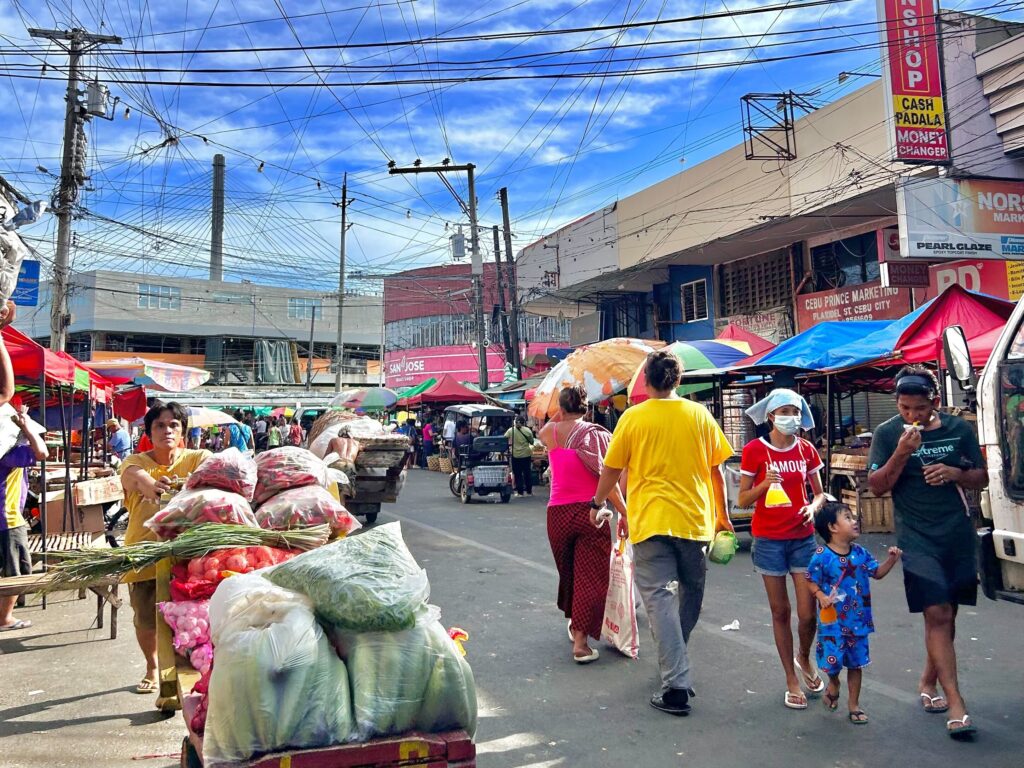
Consumers and a baggage carrier are seen walking in the vicinity of Carbon Public Market in Cebu City. | CDN File Photo
CEBU CITY, Philippines – Market goers in Cebu City can now expect a more convenient and secure way of transacting, as the local government officially launched the Paleng-QR PH initiative on August 15, 2024.
The program, officially rolled out by Acting Mayor Raymond Alvin Garcia at the city public market, aims to encourage the use of cashless payments in public markets and local transportation, particularly tricycles.
The Paleng-QR PH initiative is part of a broader effort to enhance the digital payments ecosystem across the Philippines. By promoting cashless transactions, the program seeks to provide a convenient and secure alternative for purchasing goods and paying for transportation, reducing the need for handling physical cash.
“This initiative is not just about embracing the digital age; it is about ensuring that no one gets left behind as we move towards a more digitalized future,” Garcia said during the launch.
READ MORE:
Cebu City collects higher market revenue from Jan-April 2024
Cebu City market vendors face up to 3 months’ rental penalty for faulty weighing scales
Cebu City Council warns vs price manipulation amid La Niña threat
He also highlighted his role in pushing for City Ordinance 2682, which brought the Paleng-QR PH Plus Program to life in Cebu City.
Garcia expressed gratitude to the Bangko Sentral ng Pilipinas (BSP) and the Department of the Interior and Local Government (DILG) for their leadership in developing this program.
“By promoting cashless payments in our public markets and local transportation, we are laying the groundwork for a more accessible and convenient way of doing business – one that benefits both consumers and small business owners alike,” he added.
At the core of the Paleng-QR PH initiative is the use of GCash QR codes, making transactions easier and faster.
The acting mayor also noted that the program reflects Cebu City’s commitment to innovation and progress.
“Our markets and tricycles, once symbols of our rich heritage, will now also be symbols of our readiness to evolve with the times,” Garcia noted.
Garcia mentioned the city’s role as a hub of commerce and culture that is ready to embrace the future of transactions.
The journey towards a cashless society, however, requires collective effort. Garcia called on local government units (LGUs), market vendors, tricycle drivers, and all Cebuanos to build trust in this new system and ensure that everyone understands and feels comfortable with these new modes of payment.
“Together, let us make the Paleng-QR Ph program a success, and let us continue to work towards a future where technology and tradition go hand in hand,” he said.
The Paleng-QR PH Plus program is an initiative of BSP and DILG, first launched in 2022 in Ozamiz City. It mandates LGUs to promote and, in some cases, require the use of QR Ph digital payments in public markets and transportation.
Local governments are expected to enact ordinances and policies to facilitate the onboarding of vendors and drivers onto QR Ph-ready transaction accounts, with the support of financial service providers equipped with QR Ph capabilities.